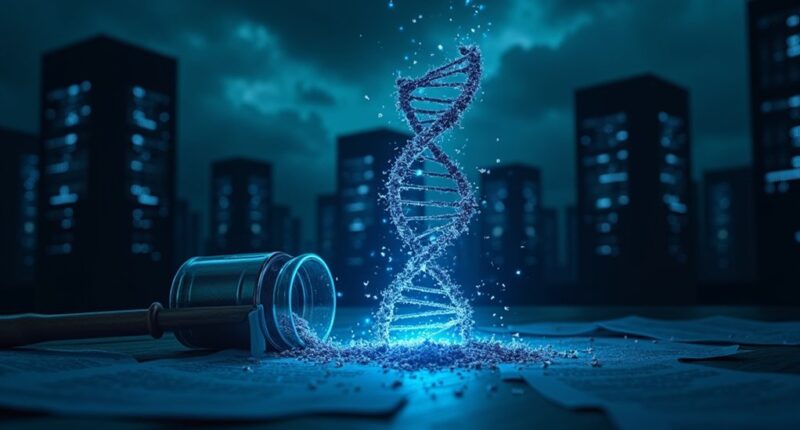As genetic testing giant 23andMe filed for Chapter 11 bankruptcy on March 23, 2025, millions of customers are left wondering what will happen to their most personal data—their DNA. The bankruptcy announcement came with immediate leadership changes, with CEO Anne Wojcicki stepping down as the company scrambles to find a buyer for its assets. Great timing, Anne.
The company claims it’s business as usual for now. They insist customer data protection remains a priority and promise transparency throughout the sale process. But let’s be real—15 million people’s genetic information hanging in bankruptcy limbo doesn’t exactly inspire confidence.
This isn’t 23andMe’s first rodeo with data concerns. Just last year, a massive cyberattack exposed 6.9 million users’ information, leading to lawsuits and a financial settlement in 2024. The breach was a PR nightmare. Now this bankruptcy? Talk about adding insult to injury.
The hard truth about genetic data: once it’s out there, you can’t change it. Unlike a compromised credit card, you can’t just get new DNA. And while 23andMe says customers can delete their accounts and data, that doesn’t undo research already completed using their genetic information. Implementing strong encryption techniques would be crucial for any company handling such sensitive genetic data to prevent unauthorized access.
Some states offer limited protections. California’s Attorney General has already urged residents to delete their data, and state laws require consent for genetic data transfers. But federal protections remain woefully inadequate. Your genetic blueprint could potentially go to the highest bidder.
While California fights for your DNA rights, federal laws leave your genetic code up for auction to the highest bidder.
Privacy advocates aren’t mincing words. They recommend customers download their personal information before deleting accounts and revoking research consent. The company claims any buyer will need to comply with data privacy laws, but cybercriminals might view this shift as prime hunting season. Chief Financial Officer Joe Selsavage has taken over as interim CEO to navigate these turbulent waters.
The bankruptcy process allows 23andMe to continue operations while addressing challenges. With bids due by May 7 and an auction scheduled for May 14, potential buyers are already circling this valuable genetic database. But for customers who trusted the company with their most personal biological information? The future remains as clear as mud. Genetic privacy in the hands of bankruptcy lawyers—what could possibly go wrong?









